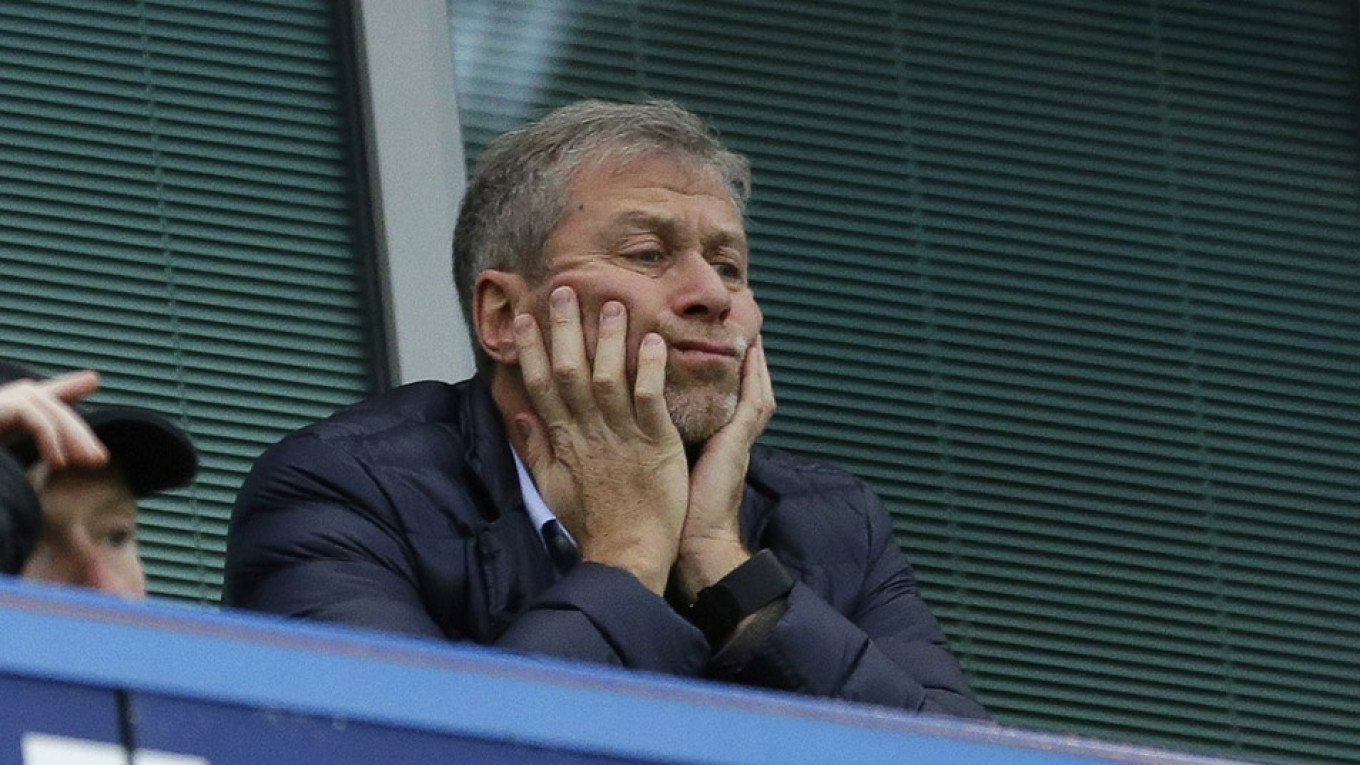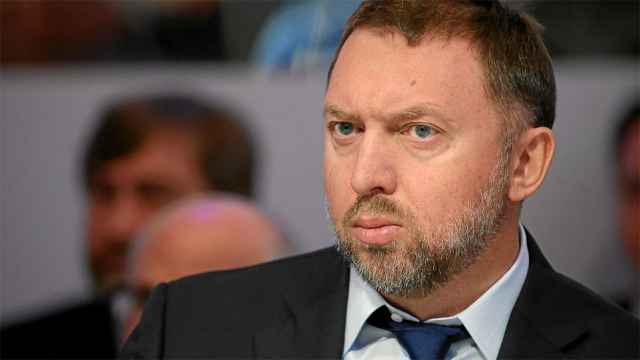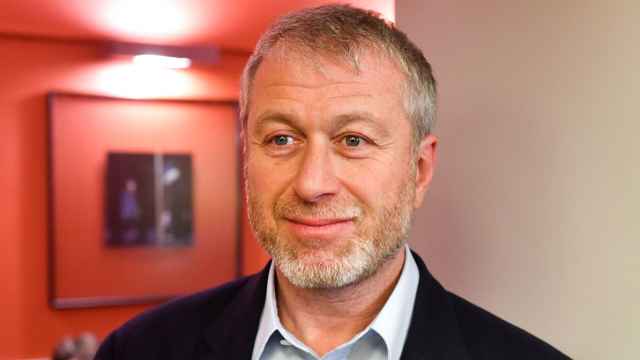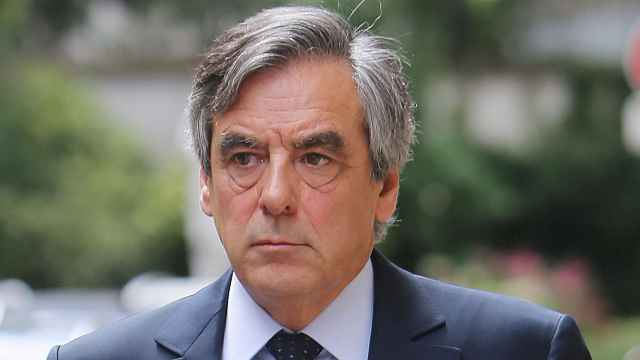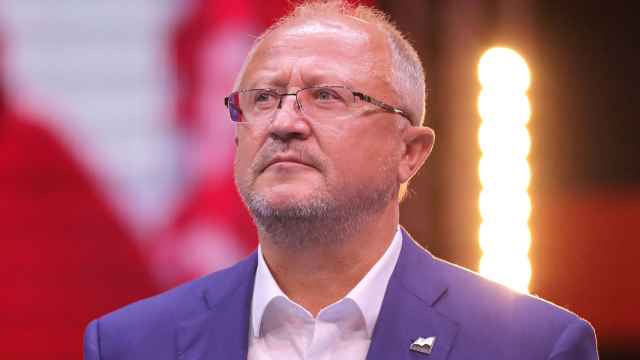Whether or not British press reports that Roman Abramovich plans to sell his stake in Chelsea Football Club are accurate, the Russian billionaire should still get rid of it. In today's political climate, there’s little point to what was always an investment in prestige first and in soccer second.
Abramovich bought Chelsea in 2003, the year Russian President Vladimir Putin called the country's business elite to heel. That year, Mikhail Khodorkovsky, the then owner of Russia’s biggest oil company, Yukos, was arrested after defying Putin’s wish that he stop funding liberal politicians.
Abramovich had no quarrel with Putin. He appeared to understand, however, that the concentration of his assets in Russia put him in a precarious situation. The swift dismantling of Yukos after Khodorkovsky’s arrest proved it. So he built himself a base in the West, where he needed a way to gain respectability that wasn’t automatically due to someone who made his fortune in the Russian privatizations of the 1990s.
Chelsea – then in dire straits, but still a London institution – looked fit for purpose. After pumping in more than 1.2 billion euros ($1.4 billion), according to Soccerex, Abramovich won celebrity status and the love of Chelsea fans.
He inspired other rich Russians: Alisher Usmanov, a pro-Putin billionaire, bought into Arsenal, another London soccer icon, in 2007. In 2010, Mikhail Prokhorov snapped up the New Jersey Nets. Fertilizer billionaire Dmitry Rybolovlev acquired AS Monaco, which plays in the French league. Others with smaller fortunes made less flashy purchases.
Since 2014, Putin’s aggressive foreign policy has made such acquisitions pointless, at least in the U.S. and Britain, where Russia is now openly seen as an adversary. In the U.S., Russian oligarchs are, by an act of Congress, described as assets of the Putin regime. British relations with the Moscow have deteriorated dramatically since the attempted poisoning of a former Russian spy earlier this year.
Usmanov and Prokhorov have set an example for Abramovich – even if the timing of their decision to cut their sports investments was a coincidence.
Usmanov’s sale of his 30 percent stake in Arsenal to the club’s controlling shareholder, American billionaire Stan Kroenke, has a business explanation: Kroenke wouldn’t let Usmanov have any say in the running of the club, nor would he sell out, so the Russian tycoon was understandably frustrated. He has let it be known that he’s open to buying a stake in another British soccer club – Everton, for example. He will expect financial, rather than reputational returns if a deal materializes.
Prokhorov, for his part, has retained control of the renamed Brooklyn Nets after selling 49 percent of the team to Alibaba co-founder Joe Tsai in April. The deal, however, allows Tsai to acquire control in 2021. Prokhorov isn’t getting out in a hurry, but his play for recognition in the U.S. is winding down.
One thing the Russian billionaires aren’t is suckers. Usmanov is highly likely to have more than recouped his investment in Arsenal. Prokhorov paid $443 million in cash and assumed debt for the first 80 percent of the New Jersey Nets and 45 percent of Barclays Arena, then a further $285 million to acquire the remainder of both assets in 2015. The deal with Tsai locks in a valuation of $2.3 billion for the team alone; Prokhorov will still keep the lucrative arena.
Chelsea may hold sentimental value for Abramovich, but the U.K. government held up his visa application in May (he withdrew it soon afterwards) and looks to be treating him as a second-class billionaire. There’s little point in hanging on to a team that is a drain on his resources and confers few social advantages. In the 2016/2017 season, Chelsea made a pretax profit of 15.6 million pounds ($20 million) – thanks largely to player sales which covered a large operating loss.
This means that, like his peers, Abramovich will need to get a price for Chelsea that allows him to recoup his investment, much of which came in the form of debt. Soccerex puts Chelsea’s net debt at 800 million euros ($936 million), the bulk of it owed to Abramovich. That dwarfs the 140 million pounds he originally paid for the Blues.
According to the Times, Abramovich now wants 2.5 billion pounds for the Blues. That should be more than adequate compensation for his reputation-building project being ruined by Putin’s near war on the West.
Leonid Bershidsky is a Bloomberg Opinion columnist covering European politics and business. He was the founding editor of the Russian business daily Vedomosti and founded the opinion website Slon.ru. The views and opinions expressed in opinion pieces do not necessarily reflect the position of The Moscow Times.
A Message from The Moscow Times:
Dear readers,
We are facing unprecedented challenges. Russia's Prosecutor General's Office has designated The Moscow Times as an "undesirable" organization, criminalizing our work and putting our staff at risk of prosecution. This follows our earlier unjust labeling as a "foreign agent."
These actions are direct attempts to silence independent journalism in Russia. The authorities claim our work "discredits the decisions of the Russian leadership." We see things differently: we strive to provide accurate, unbiased reporting on Russia.
We, the journalists of The Moscow Times, refuse to be silenced. But to continue our work, we need your help.
Your support, no matter how small, makes a world of difference. If you can, please support us monthly starting from just $2. It's quick to set up, and every contribution makes a significant impact.
By supporting The Moscow Times, you're defending open, independent journalism in the face of repression. Thank you for standing with us.
Remind me later.



